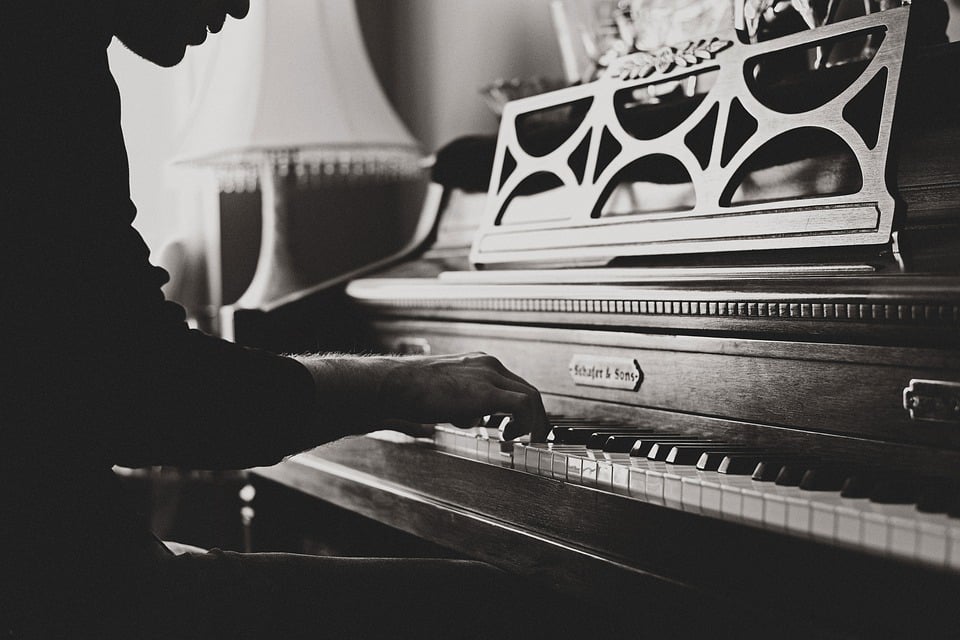
Looking for the reasons why you should learn to play the classical piano?
Before we start, if you are interested to learn classical piano lesson online, please check one of the most highly rated programs – ArtistWorks Christie Peery Classical Piano Lesson (Video Exchange Learning Platform).
Playing the classical piano has plenty of benefits that impact human beings positively on a mental and physical level. Some of the benefits range from boosted brain power to enhanced physical performance. To convince you, here are 10 reasons why you should learn how to play classical piano:
Read also: Websites to Learn Classical Piano Online
10 Reasons Why You Should Learn to Play the Classical Piano
- It enhances concentration levels
To play the piano correctly, one has to concentrate on different vital elements such as note duration, tempo, pitch, and other aspects that require high levels of concentration. When playing classical piano, almost all areas of the brain become stimulated. Additionally, when a student plays the piano consistently, it trains one to become more agile and precise, which requires a lot of concentration. Reading sheets also help to improve one’s hand-eye coordination, as well as the reaction time.
- It teaches discipline and perseverance
Learning classical piano is not the easiest thing that you will ever do. However, when done right and frequently, it teaches the value of perseverance and discipline. For instance, consider those areas in the classical piano that have to be repeated over and over again- the more one does it, the better one becomes. To be able to practice on a regular basis, one has to develop discipline. Though it is often more difficult at the beginning stages, with time, being disciplined pays off.
- For an augmented memory
When you play classical piano, you also stimulate the brain making it more active. According to continued research, the parts of the brain responsible for storage of information tend to be larger and more developed in musicians compared to those that do not play at all. As such, when you play an instrument that is as involved as the piano, your ability to memorize things improves greatly. Likened to physical exercise, classical music is a tool that tones your brain so that it can be as fit as possible.
- Playing classical piano great for your joints
Any type of continued movement can have a great effect on human joints. Playing the piano, in particular, helps with the joints on your wrist and hands. Basically, classical piano helps to exercise the joints on your hands especially when one plays the piano on a daily basis. What this leads to in the future is reduced instances of pain, leads to improved flexibility, and it allows your muscles to remain loose thereby preventing the onset of degenerative diseases such as arthritis.
- Classical piano increases your creative juices
Playing classical piano is a creative activity that allows you to look beyond your current experiences so that you can start to express yourself in new and interesting ways. At some point or other in your classical piano career, you will be required to come up with your own pieces, improvise some solos or re-perform existing compositions by adding your personal feel to them. When you develop an interest in playing the piano, it will also allow you to lose yourself in the creative process, which is the best way to learn.
- Improved school performance
Students that take up the piano usually develop better cognitive awareness than students that do not, which is vital for success in academics. Since playing the piano has been proven to improve concentration, memory, as well as get your creative juices flowing, these skills can be applied to improve one’s academic performance.
- To grow your emotional intelligence
For one to be considered a great piano player, one also has to be an excellent listener, which is highly beneficial when interacting with people. The piano also makes it easy to express yourself. Emotions can be expressed in a range of ways including facial expressions, the tone of voice, the melody of speech, body language all of which are evident when one is playing the piano. Individuals that play instruments tend to be better listeners so it does not come as a shock that classical piano players are more perceptive and better at understanding other people’s emotions.
- It can be played as a solo
Classical piano produces both harmony and melody which also means that it can be played as a solo without any other accompanying instruments. Unlike other instruments that primarily produce the melody line such as clarinets or violins, it is possible to hold an entire performance solely on the piano.
- Classical piano breeds success
In general, classical piano breeds success. When all these benefits listed above are put together, it enhances one’s chance of succeeding even in other professional careers. Classical piano imparts other vital skills such as improved confidence and self-esteem, ability to take criticism positively, improved grace and poise, which are instrumental for success later in life.
- For the fun of it
Classical piano is fun. There are plenty of fun classical piano pieces that can be enjoyed by the young and old alike. From invigorating classical pieces to those that force you to relax, there is a piano piece for everyone, regardless of the experience level, the mood or the circumstance.
Conclusion
Whether you have already learned to play several other instruments or are choosing to concentrate solely on classical piano, one thing is clear, that there are numerous advantages that come with it. Though there are many forms of classical music that have died out over the years, classical music has the longevity that will see it remain part of society for years to come.
